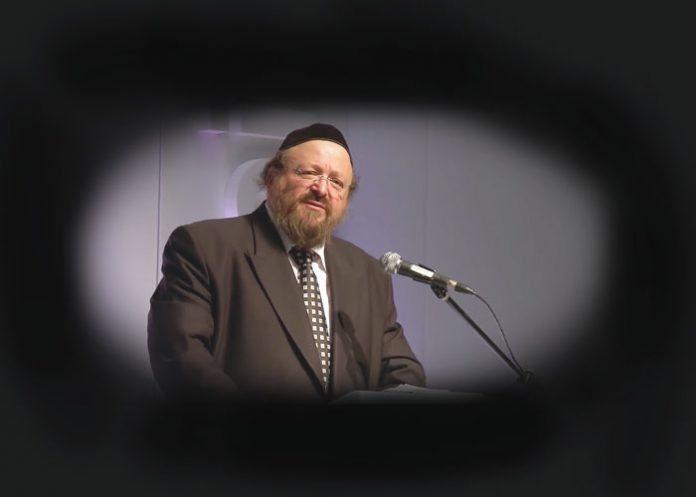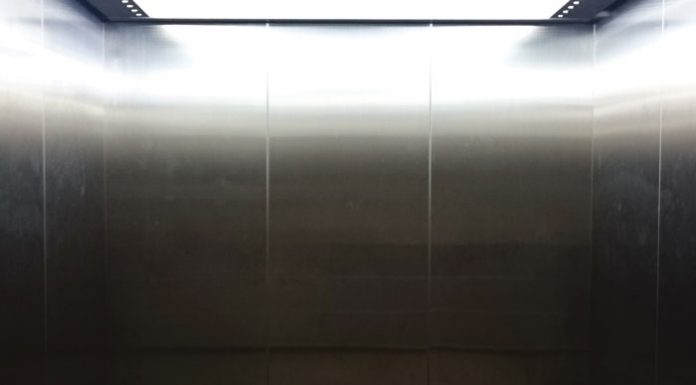Dayan Yonason Abraham, an esteemed member of the London Beth Din, was born in London and studied in the yeshivos of Gateshead and Lakewood. In 1985 he moved to Australia, where he was a member of the Lakewood Kollel Beis Hatalmud in Melbourne.
He subsequently learned in the Brisk yeshivah in Yerushalayim and then returned to Melbourne to pursue further kollel studies. In 1995 he was appointed head of the Caulfield Hebrew Congregation in Melbourne, and two years later became a member of the Melbourne Beth Din. Dayan Abraham was invited to join the London Beth Din in 2001, and has since become involved in numerous communal organizations.
He spoke to Ami last week about his upcoming trip to the United States to participate in the Agudah Convention, which is being held this weekend at the Crowne Plaza Stamford Hotel in Connecticut.
I understand that you will be the keynote speaker at this coming
Agudah Convention.
There are many keynote speakers, but I will be speaking on Thursday night.
What does the Convention mean to you?
For me, participating in the Agudah Convention is an invaluable opportunity to see chareidim coming together from across the spectrum. The fact that there are balebatim in positions of leadership who are completely committed to daas Torah and the Moetzes is a tremendous thing. I look forward to seeing the best of what Jewry can accomplish when we come together.
You find that unity inspirational.
Certainly. I’m a big chasid of what Agudah does. This year’s theme of “Together We Will” stresses that point exactly: that we can unite under the gedolei Yisrael and include all segments of Torah Jewry to the extent that is possible under daas Torah, while feeling both the achrayus and the confidence that we will be successful. The basic theme is “V’yaasu chulam agudah achas laasos r’tzoncha b’leivav shaleim,” which is the only way to do things properly. When we come together in this manner, pooling our resources and obtaining insights and input to guide us forward, we can then address some of our challenges on a more local and specific level.
Wasn’t that the original goal when Agudas Yisrael was founded almost 100 years ago, to unite and guide klal Yisrael under a single umbrella? It would seem that the objective is to go back to the organization’s roots.
As I said, the main thing is the achdus, but we also need the practical peulos that come as a result. The idea is to tackle the unique challenges of each tekufah by joining our kochos together under daas Torah.
What would you consider one of the biggest challenges facing us today that klal Yisrael should be aware of?
There are two areas. One is that the success and growth of our kehillos, ka”h, has also meant that each group has a tendency to become more inward-focused and insular, so we don’t always have the same unity as we did in the past. This is something we need to be very cognizant of, because individual mosdos or kehillos sometimes try to tackle issues on their own when they would be better served tackling them together with others under the umbrella of Agudah.
The second problem is technology, although it’s not really the technology itself, per se, it’s the challenge of making the next generation feel connected. Everyone needs to feel that he fits in and has a place. The danger is that technology can create further problems along the fault lines, the cracks and flaws, of those Jews who don’t have a strong sense of connection to the community or kehillah identity.
Like everywhere else, technology is also a problem in Eretz Yisrael, but it’s much more limited, and certain gedarim have been made. I’m not familiar with England, but I can tell you that these gedarim do not exist to the same extent in America.
In that regard, the encroachment of technology on day-to-day life has become both a good thing and its opposite. The fact that the Internet has become such a double-edged sword, a tool for the downside and yet such an important resource with numerous maalos, makes it very difficult to have that nesirah bein tov l’ra [discernment between good and evil]. In Eretz Yisrael they have been able to limit it because they have enough of a kehillahshaft that people don’t need the Internet to communicate or to network, or at least they only need it in a limited way. But in chutz laaretz, the whole business infrastructure and way of life relies very much on the communicative powers of the Internet. So it’s a big challenge, and we have the same problems in England and the rest of Europe.





















